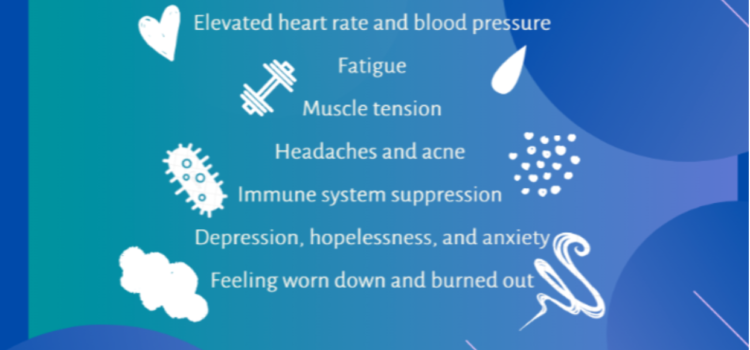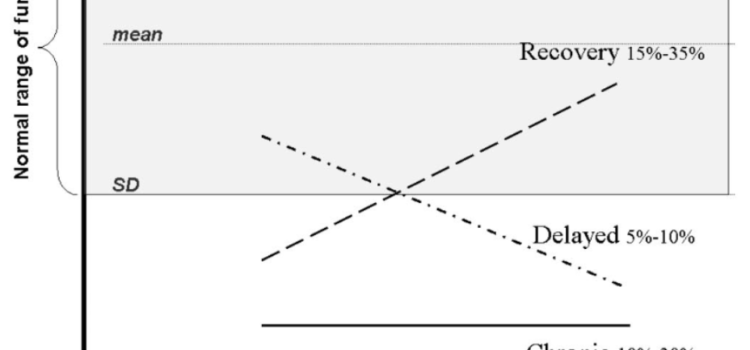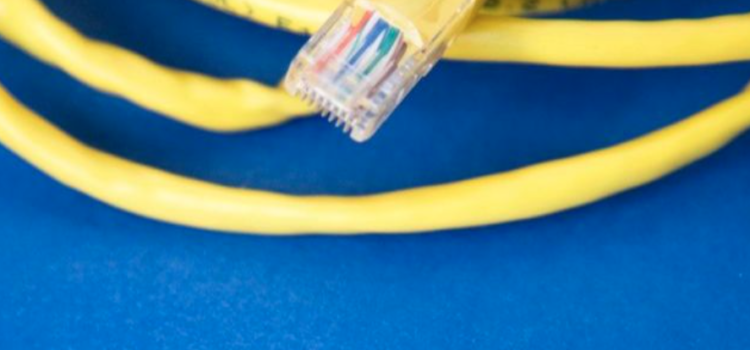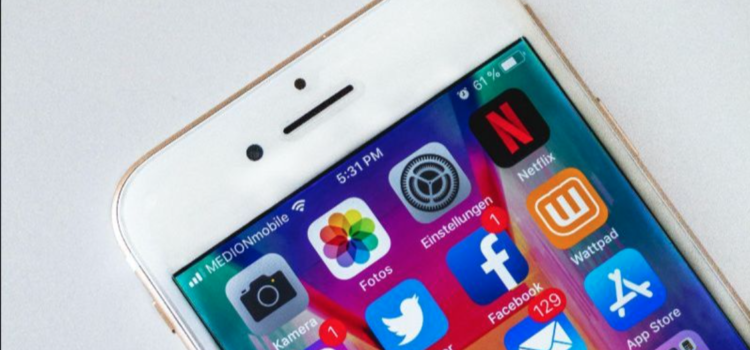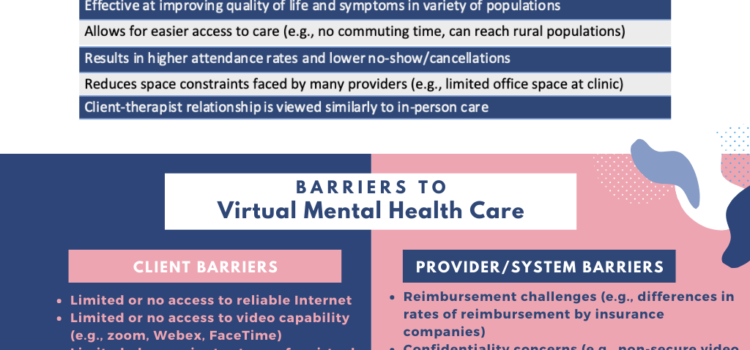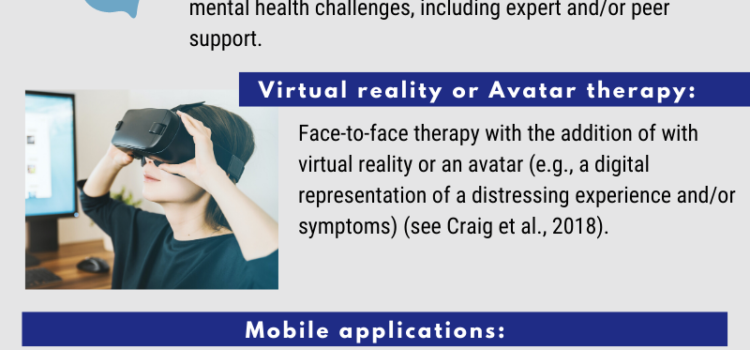When we perceive a threat to our wellbeing, our bodies activate the acute stress response, also known as the “fight or flight” response. This is designed to give us a burst of strength and energy, and impacts systems in our bodies. For example:
Our heart rate, blood pressure, and breathing increase, to deliver oxygenated blood to our muscles…
